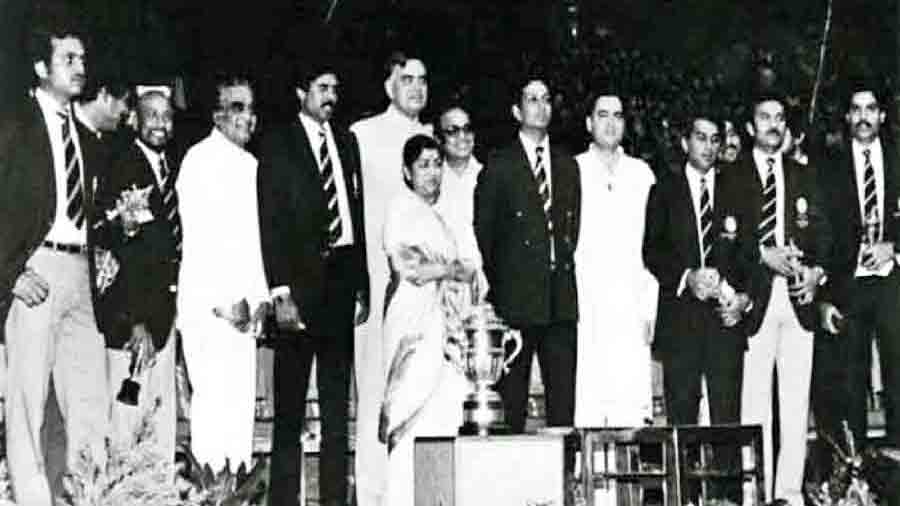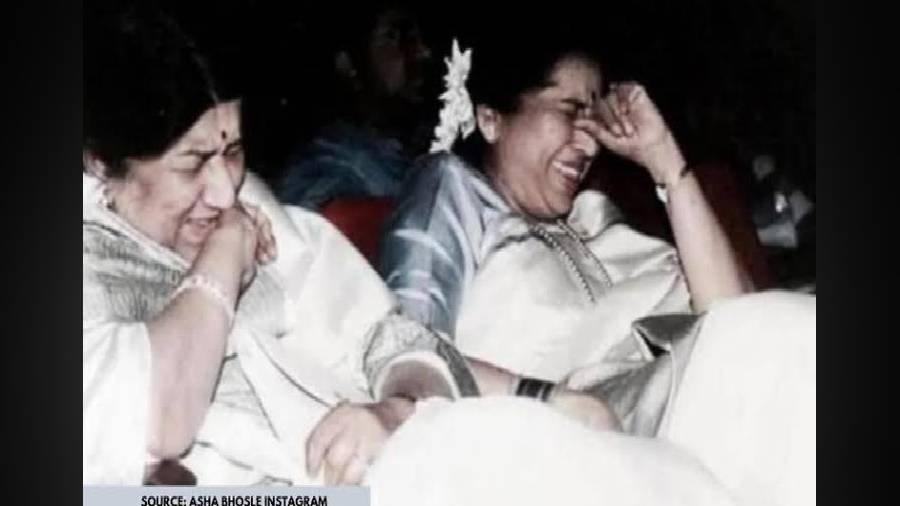In Lata Mangeshkar’s passing on Sunday, Indian cricket lost one of its most ardent followers. As she told Nasreen Munni Kabir in Lata Mangeshkar…in her own voice, “we grew up with cricket” and age could never steal her love for the game.
A die-hard fan of former Australia all-rounder Keith Miller and India’s very own Sachin Tendulkar, Lata, who passed away on Sunday morning at Breach Candy Hospital in south Mumbai, was a cricket buff from a very early age.
She was at Lord’s on June 25, 1983, to see Kapil’s Devils turn the table on the mighty West Indies. On Kapil’s invitation she attended the celebratory dinner also.
Later, when a cash-strapped BCCI had to raise funds to honour their announcement of giving Rs 1 lakh each to the World Cup-winning India players, Lata was called into action by Raj Singh Dungarpur, her close friend and former Board president, for a concert at the Indira Gandhi Indoor Stadium in New Delhi. Lata, known as the ‘Nightingale’ for her singing prowess, sang for free in front a packed stadium and the event made sure that BCCI collected enough money and each of the 14 members got their cash award.
The Board, till her death, kept two complimentary VIP tickets allocated for her at any stadium in the country where India played an international match.
The Mangeshkar family’s love for cricket was because their father Deenanath was also a cricket enthusiast.
Deenanath had a theatre company which formed a cricket team made up of the artistes and the workers. Former India captain Vijay Hazare was a friend of Deenanath and would often drop by to watch these matches played by the troupe. CK Nayudu, India’s first Test captain, was also a family friend.
The first match Lata said she watched at a stadium was the unofficial ‘Test’ between Vijay Merchant-led India and an Australian Services team captained by Lindsay Hassett at Bombay’s Brabourne Stadium in November 1945. The Australian team then had among others the great and flamboyant all-rounder Miller, who was a fighter-bomber pilot with the Royal Australian Air Force during World War II. Lata became a life-long fan of Miller who gifted her an autographed book that would remain one of her most prized possessions.
She was also an admirer of Sir Don Bradman and received a signed photograph from the Australian legend inscribed with the words “To Lata”.
Despite her busy schedule, she, along with composer-brother Hridaynath and sister Meena, was a regular at the Cricket Club of India’s Brabourne Stadium and later the Wankhede as well. Lata used to be so superstitious whenever India played that she would keep a Ganapati idol on top of the television set and pray.
Fittingly, as a mark of respect, the Indian cricket team observed two minutes’ silence before the first ODI against the West Indies in Ahmedabad on Sunday and wore black armbands.
In her conversations with Kabir, she mentioned Garry Sobers, Rohan Kanhai, Richie Benaud, Ray Lindwall, Alan Davidson and Neil Harvey as the players she watched play and who made an impression on her. And among Indian cricketers, she singled out Mushtaq Ali, Vinoo Mankad, Vijay Merchant, Mansur Ali Khan Pataudi, Sunil Gavaskar and Sachin Tendulkar.
She counted Hazare, Bishan Singh Bedi, Gavaskar, Kapil Dev and Sachin as family friends.
In 1988, Lata and Amit Kumar participated in a concert in Calcutta for the East Bengal club’s pre-platinum celebrations. Suprakash Gargari, the club’s then football secretary and a close friend of the Mangeshkar family, had organised the musical event. Lata was made a life member of East Bengal.
A grieving Gargari remembered the function as if it had happened yesterday. “The club was facing financial problems. I was asked if I could arrange a concert to raise money. I used to travel to Bombay regularly and I had this idea of bringing Lata Didi to the club.
“She agreed to do the concert at the club ground. Lata Didi, Amit Kumar and Hariharan enthralled the audience. Last year, when I was in Mumbai to stay with my daughter, I had gone to meet her,” Gargari told The Telegraph.
Lata was drawn to football, and East Bengal, through composer SD Burman.












